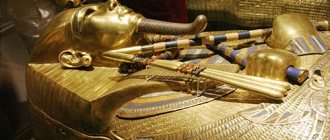Why does a person moan in his sleep? According to medical terminology, this phenomenon is called catophrenia. This word is of ancient Greek origin, and it consists of two meanings. Cata, translated from Greek, means “below”, and phrenia means “lamenting”. That is, according to the ancient definition, people who moan during sleep have long been called “lower lamenters.” Why does a person moan when he sleeps, and what to do? We will try to figure this out.
Undesirable symptoms associated with moaning during sleep
Doctors recognize this problem; they tend to consider a person’s groaning in sleep to be an undesirable phenomenon. This condition is classified as parasomnia. Therefore, it is advisable to get rid of it if possible, but it in itself does not pose a risk to human life.
Frequent moaning during sleep has an extremely negative impact on both the psychological and physical health of a particular person, as well as those around her. For example, close people may be annoyed by the frequent groans of a sleeping person. At the same time, they may suffer from insomnia, have a constant feeling of irritation and fatigue.
Treatment and prevention
Moaning during sleep does not cause a delay in breathing and does not provoke the development of hypoxia, therefore it does not directly harm the human body. For this reason, no specific treatment method has been developed for the disease. The direction of therapy is determined when the etymology of catophrenia is established.
Diagnostics
At the first stage, a comprehensive examination involves excluding more serious diseases from the diagnosis, that is, apnea or epilepsy. To do this, the doctor asks a number of standard questions:
- Presence of parasomnia in blood relatives;
- How long has the symptom been present?
- How often do attacks occur and how long do each of them last?
- List of medications taken on an ongoing basis over the past year or two;
- Having bad habits.
Before conducting an examination with special equipment, the patient is asked to keep a diary for two weeks, where he will record all the manifestations of catophrenia and the features of each case. This will allow us to determine the main treatment methods.
Who is doing the treatment?
Issues of sleep disorders are examined by a somnologist. He makes a diagnosis based on the collected data and the results of the patient's polysomnography examination. The somnologist assesses the general condition of the body and identifies possible secondary causes of the development of parasomnia.
Along with the main specialist, the patient is required to undergo examination by an ENT doctor and a psychotherapist. The otolaryngologist must exclude features of the anatomical structure from the list of possible causes of the disease. The task of a psychotherapist is to establish the presence or absence of mental illnesses, as well as to assess the patient’s current mental health state.
Main methods of treatment
Depending on the etymology of the disease, methods such as:
- CPAP therapy;
- Treatment of diseases of the ENT organs;
- Stabilization of the patient’s psycho-emotional state;
- Change of pillow and/or mattress.
Sometimes a sleep disorder is based simply on the uncomfortable position of the head and neck during rest. The problem is solved with the help of an orthopedic or wedge-shaped pillow.
What exactly causes a groan and what are its features?
Why does a person moan in his sleep? During sleep, a person, letting the air into himself very deeply, tends to hold his breath for a certain time. Then exhalation occurs, which is often accompanied by a very unpleasant groan.
The frequency of such a groan from a sleeping person can be either an instant or a minute. According to the general tendency, catophrenia lasts longer during the second part of the night period. This fact is due to the fact that the paradoxical phase of dreams becomes longer closer to the morning.
If someone prone to cataphernia changes the position of their own body while resting, the groaning may stop for a certain period, but not for long.
Men suffer more from moaning in their sleep: in them this phenomenon occurs 3 times more often than in women. It mainly begins to develop at the age of 18-20 years.
What is catophrenia
Moaning during sleep is called “catathrenia” in medical practice. This is a sleep disorder characteristic of the REM phase. It manifests itself in a short-term holding of breath, and on exhalation it is accompanied by characteristic sounds. There is still debate about the etiology of this disorder. Experts come to the conclusion that the phenomenon has a purely psychological aspect.
Men are most susceptible to parasomnic disorder; it is rarely observed in newborns. Most often, moaning occurs in the second half of the night or in the morning - it is during this period that the REM sleep phase occurs. The sound produced is heard for 1–60 seconds, while the sleeper himself does not react to it, since it does not cause him any discomfort. Occurs periodically or every night.
ATTENTION! It is impossible to determine what is bothering the sleeping person: during the appearance of sounds, facial expressions are calm, muscles are relaxed. Moans are observed regardless of body position. But changing your position often allows you to get rid of them for a while.
In addition to groans, these could be:
- snort;
- mooing;
- howl;
- squeal
Therefore, if a baby or adult groans in his sleep, there is reason to believe that these are manifestations of catophrenia.
What are the types of groans, their symptoms and characteristics?
Moans can be produced in completely different ways, and the person who involuntarily reproduces them may not even be aware of such a problem. Symptoms indicating its presence include:
- dry throat;
- pain in the nasopharyngeal system;
- complaints from surrounding people.
If these factors converge, you should take this problem into account and take measures to eliminate it
Among the main types of sounds from catafernia, unpleasant and rather loud moans stand out, which look like a howl, squealing or mooing.
The main features that distinguish cataphernia from other phenomena
Cataphernia differs from many phenomena that can occur to a person during his sleep. For example, it differs from snoring in that sounds are produced directly when air is exhaled. During snoring, everything happens exactly the opposite.
Sleep apnea differs from catafernia in that breathing in this process stops after exhalation.
Causes of moaning during sleep
In order to fight such a disease, it is worth trying to identify the true reasons that provoke its formation. Why does a person moan in his sleep at night? In order to find out, you can contact your doctor, who will not have any difficulty in making the correct diagnosis and giving recommendations regarding treatment for cataphernia.
There are a number of assumptions why a person groans during sleep. Doctors have identified the following main reasons:
- A problem with the upper respiratory tract, blockage or narrowing.
- A damaged structure in the brain that controls breathing.
- Closing of the vocal cords during the paradoxical stage of sleep, which can provoke overcoming resistance.
- Hereditary origin. Most of those who suffer from cataphernia have family members who also suffer from sleep disorders. This could be sleepwalking, bruxism, nightmares.
- Removal of teeth due to crowding, various orthodontic problems.
- A jaw that is undeveloped according to medical standards.
- High susceptibility to nervous tension, anxiety and stress.
- Mental and physical exhaustion.
Alcohol lovers should also refrain from drinking too much, especially before bed. If a person drank any strong alcoholic drink immediately before a night's rest, he will also be susceptible to cataphernia.
Therefore, the norm in this situation is to drink alcohol no later than 4 hours before the onset of deep sleep.
Smokers should also be careful about their own health. Indeed, by constantly inhaling tobacco smoke, a person exposes himself to the risk of mucus congestion in his respiratory tract. As a result, the body has to make some effort to push the air inside. And this all leads to noise moaning.
Sometimes even sleeping on the back causes the back of a person's tongue to sink, which leads to blockage of a significant part of the opening through which air passes. This is why the production of unpleasant sounds in the form of groans occurs during sleep.
Preventive measures
To avoid moaning during sleep, experts recommend:
- Create comfortable conditions for a night's rest: buy a comfortable mattress and pillow, protect the bedroom from extraneous noise and bright light, be sure to ventilate the room before going to bed and maintain the optimal temperature and humidity level.
- Adjust your diet: give up late and high-calorie dinners, reduce the consumption of alcoholic beverages, strong tea and coffee.
- Strictly adhere to the daily routine: go to bed no later than 22-23 hours and get up in the morning at the same time, so that the body has time to fully restore the strength spent during the day.
- Organize evening leisure correctly: it is better to devote the time before bed to reading, handicrafts or a walk in the fresh air, refusing activities that excite the nervous system (watching films with a tense plot, traveling on the Internet, etc.)
Others should also make some changes to their usual lifestyle. To be able to fully rest at night and relieve a person suffering from catophrenia from the constant feeling of guilt for the discomfort caused, his loved ones can get earplugs, a white noise generator that creates ideal conditions for deep sleep in the bedroom, or, in extreme cases, take a The rule is to just relax in the next room. The main thing is not to give up and actively try to solve the problem by promptly seeking help from qualified specialists.
Similar materials
Diagnosis by a doctor
If there are problems with sleep, a person groans or whines in his sleep, it is necessary to urgently contact a specialist. Doctors, in order to professionally establish the cause of the described disease, carefully conduct research and interview their patients. Among the main questions that medical professionals often ask all those who decide to use their service may be the following:
- what is the frequency of moans and their duration;
- how often do nightmares occur?
- is there pathology in the family environment;
- How often do you drink alcohol or take drugs before bed?
It is also very important to show the specialist a diary in which notes were kept regarding the characteristics of nighttime moaning. It can be carried on thanks to relatives. After all, they are able to clearly describe the behavior of a person suffering from this disease during rest.
Fighting catophrenia
It will be very helpful for doctors if you bring your sleep diary.
First of all, it’s worth figuring out in what cases does a person moaning in his sleep need professional help? Of course, if he feels unwell, that is, when catophrenia is accompanied by other alarming symptoms. And even if there are no signs indicating health problems, but moans emitted at night disturb the sleep of others or force the person with catophrenia to wake up in the morning with a feeling of fatigue, discomfort in the throat and a hoarse voice, it is better not to postpone the solution to the problem until later.
Which specialists are best to contact?
What to do if you moan in your sleep? Which doctor should I contact? You need to visit a somnologist. He can study the characteristics of sleep in detail, as a result of which he can determine whether nighttime moaning has connections with other disorders in this area.
The otorhinolaryngologist conducts a detailed examination of the ENT organs in order to identify the organic cause that led to the formation of cataphernia.
A psychotherapist will be able, if necessary, to eliminate any mental problems.
What research is carried out for cataphernia?
If this problem exists, there is often no need to conduct instrumental research to establish the true causes of its occurrence. However, if cataphernia is in an advanced form, the doctor can perform polysomnography. Thanks to it, the work of the heart, brain waves, and breathing rate during sleep are studied. In addition, the movements of the arms and legs during rest are analyzed and recorded. All this makes it possible to determine whether catafernia is associated with other diseases.
Tags
Diseases of the cervical gynecological diseases Diseases Legal advice replacing consultation with Doctors blame Doctors about doctors
doctor consultationprices nightmareservicesinformationbodybackdiagnosismechildrenyearsymptomspsychologytestsneurologynervousauthorgiveexaminationcontactsmorecenterbreathingevenansweredreviewsyouonlydayspanicattacktearssystempartfeelingconsentrecordcomplexwhoseworknamelyruncontactpanicprogramsultrasounddatacostindividualironnonclinicendocrinologysharefacebookgoogle
Treatment for moaning during sleep
Why does a person moan in his sleep? You already know the possible reasons. How to treat? An exact method of treating cataphernia has not been developed, but certain recommendations can be given to eliminate or minimize it:
- Before going to bed, you should take a shower or bath, rinse your nose with warm water;
- carry out breathing exercises based on generally accepted rules;
- drink hot tea;
- take a pose while resting with the head of the chair raised.
For all those who are nearby, you should also be advised to use earplugs while sleeping, sleep in other rooms, and carefully change the body position of the person who makes loud noises while resting. Of course, the problem itself associated with the presence of catafernia is not dangerous and does not pose a great threat to human life and health. But you still need to find out why a person groans in his sleep, since this ailment can be closely related to serious diseases. There is no need to panic in this situation; today there are many ways by which such ailments can be eliminated once and for all.
Nothing unusual
Lack of air in a dream is often explained by fairly mundane reasons that have nothing to do with prophetic omens or products of the unconscious. It is worth learning to distinguish such nightmares from dreams, from which you can learn a lot of useful things.
Often a sleeper sees an insidious strangler in his dreams if he suffocates in reality. This happens if something is pressing on his neck or there is not enough air in the room. Dreams in such cases are just the body’s reaction to discomfort.
Such stories sometimes haunt women who are carrying a child under their hearts. A lady in an interesting position needs more air, because she breathes not only for herself, but also for the child , therefore, her sensitivity to air quality increases.
Many people experience periods of suffocation in the dark, which are also called apnea. It's very annoying, but the problem is really common.
The reasons may be as follows:
- vascular diseases;
- interruptions in heart function;
- increased sensitivity to certain irritants;
- bronchial asthma;
- physiological characteristics.
This condition carries certain risks and significantly reduces the quality of life, so it is advisable for a person who has repeatedly experienced sleep apnea to consult a doctor. The specialist will prescribe treatment and give useful recommendations.











